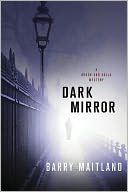One of my favorite books as a middle-schooler was
Monster Maker by Nicholas Fisk. I must have checked it out of the library a dozen times, and I was thrilled when I found my own copy years ago. But that was the only Fisk book the library had. A few months ago I went looking for more of his books, and the only one I could find was this one,
Trillions.
I expected to love it. It's science fiction, about millions--trillions--of tiny aliens that land on earth. As far as I could guess from the text (which is not clear on their size), the trillions are about the size of a grain of sand, and while they can move and interlock, they don't do anything else. They heap up in drifts like sand dunes, occasionally join together to imitate nearby structures, and are gathered by children because they glitter prettily in different colors. The book introduces four children, two boys and two girls, and I was looking forward to seeing what Fisk would do with such a fascinating concept.
The answer: not much. The book was published in 1971, which explains (I suppose) why the boys are the ones who do things while the girls make bracelets out of the trillions and act babyish. It doesn't explain why the
entire world in this book thinks banding together to obliterate the trillions with nuclear weapons is a good choice. Remember, the trillions don't actually hurt anything. There are a few small examples given of the trillions imitating rockets (although they aren't rockets) and inadvertently causing an old man to have a heart attack, and the
entire world except for one schoolboy thinks that makes them
enemies. There are lots of scenes of generals shouting about taking ACTION against the trillions--which do nothing, keep in mind. Also, English children are required to leave school so they can shovel up trillions into wagons and dump them in a big pile, overseen by soldiers. This continues throughout the whole book and doesn't make any sense. Nothing much makes any sense.
The main character, sort of, is a boy named Scott. Through a combination of telepathy and handwavium, Scott learns how to communicate in a limited way with the trillions. He doesn't share this information with anyone, and although I read the damn book I still don't know why he doesn't. But that's the problem with this book: it's just got an axe to grind about people ruining the environment, and the army being, I don't know, evil or something and too ready to set off those nasty nuclear weapons--which cause some fish and birds and trees to die, but don't seem to hurt people (or the environment).
Even if the plot did make any sense--and really, it doesn't--the writing is awful. The book reads like an outline, an overview. Not only that, not much happens--and when it does, it's really too late. Why didn't Scott act sooner? Well, if he had, Fisk would had had to work out an actual plot to go with his idea.
B&N link (used book)
 Here's one of those weird books that don't fit into any real category. It's a hard-boiled mystery peopled (ahem) entirely with cats and dogs. Intelligent ones. That wear clothes and carry guns and walk on their hind legs and wear shoes. No, I couldn't quite get my head around it either, but the book is surprisingly fun.
Here's one of those weird books that don't fit into any real category. It's a hard-boiled mystery peopled (ahem) entirely with cats and dogs. Intelligent ones. That wear clothes and carry guns and walk on their hind legs and wear shoes. No, I couldn't quite get my head around it either, but the book is surprisingly fun.




















